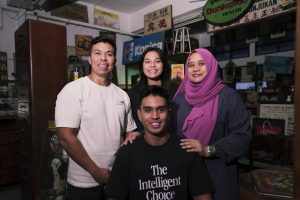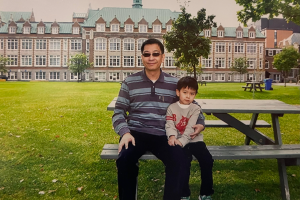All images courtesy of PPIS.
This story is part of RICE Media’s Storytellers partnership with the Singapore Muslim Women’s Association, or PPIS (Persatuan Pemudi Islam Singapura).
PPIS Family Service Centre (East) presents a story about male mental health in Singapore. Produced by Pan Jiayao & Nur Afrina Atiqah Md Rais.
After going through surgery due to diabetes in 2019 and a recent bout with kidney failure, *Aiman has to rely on a personal mobility device to get around his rental flat in Ubi.
As the 44-year-old depends entirely on his Indonesian wife for daily living, *Aiman became physically unfit for employment. With the family’s finances under strain, he struggled to pay for his 11-year-old stepdaughter’s school fees. As she is on a student pass, the prices aren’t subsidised.
Due to citizenship issues, his stepson isn’t able to work in Singapore to support the family.
Pushed to the brink, *Aiman made the difficult decision to receive assistance from PPIS Family Service Centre (East) for his stepson’s citizenship matters and for financial assistance, especially with his stepdaughter’s need for additional tuition classes.
It never crossed his mind to seek help at first—there was an initial hesitance before approaching PPIS.
“Many men have an ego, [and] feel ashamed to ask for help… I can’t work, so I was forced to ask for help.”
Media messaging and trends have always spoken about how seeking help should be normalised. So why are men still so reluctant to seek help?
‘Men Don’t Need Help’
Self-reliance and independence have always been key traits of masculinity. In the Regency era (circa 1714-1837), the ownership of property was referred to as “manly independence”. Unfortunately, such archaic ideas are still perpetuated in modern society.
Bartle Bogle Hegarty (BBH) Singapore found in their 2022 survey that 7 in 10 men here believe that there is an expectation for men to be more emotionally resilient than women. 53.2 percent of the respondents mentioned that they did not ask for help because they’ve “learnt to deal with it”.
This is in line with Singapore’s relatively conservative culture, in which gender norms remain entrenched.
The same finding was echoed in a semi-structured interview on Family Service Centre’s (East) male clients presented at the PPIS Professional Social Service Forum in 2022, which cited seeking help as a sign of weakness.
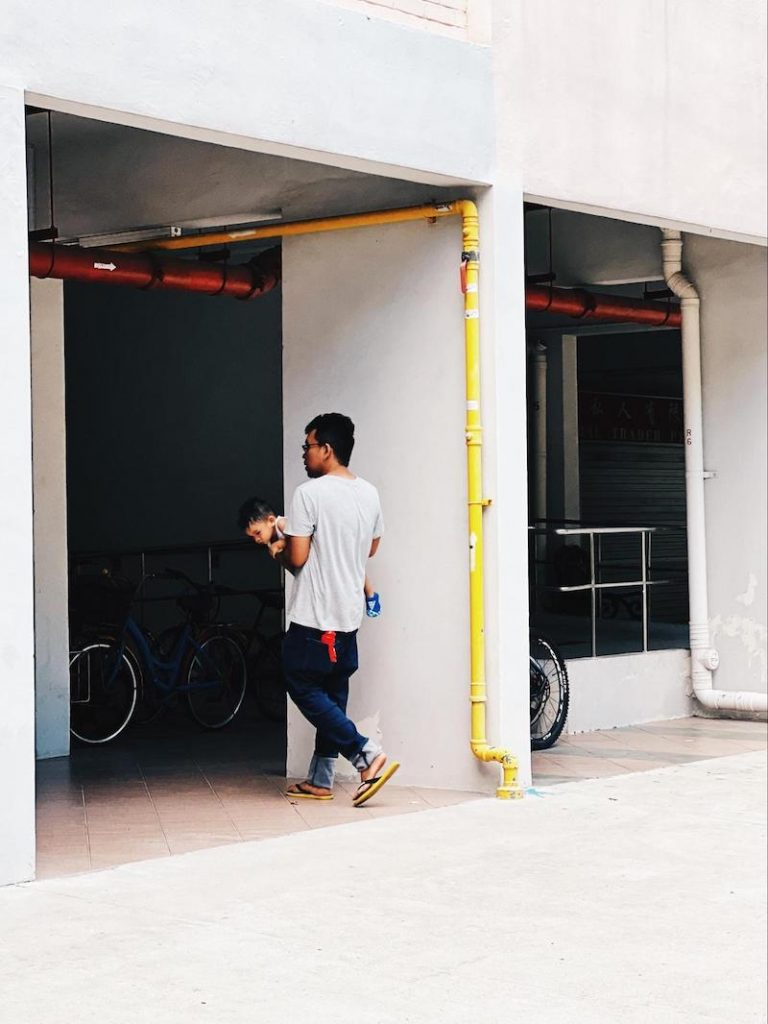
*Aiman affirmed such sentiments in his interview. He mentioned how Singaporean men tend to refuse to discuss their struggles with their families.
“Seeking help is tied to honour and dignity, so some men don’t want to seek help as it is seen as tarnishing their honour.”
*Khairul, another interviewee who approached PPIS for his housing and financial issues, said the shame is tied to the traditional breadwinner role.
“Some [men] think they are a breadwinner, and they may feel ashamed to seek help… It really is all about ego for some men.”
When men don’t fit into the ‘masculine ideal’ of self-reliance and emotional strength perpetuated by society, they may be looked down on or perceived as ‘weak’. This pushes them to feel a sense of shame.
As noted in the Institute of Policy Studies Women’s Conference in 2021, such stereotypes are often perpetuated in predominantly male spaces such as in schools or in National Service. In a country with mandatory military service for all men, the connection between duty, perseverance and manhood is still naturalised and very much intact.
In an era when masculine stereotypes (men hunt for food, women stay at home) are thought of as a past relic, they are still a reality for many. It is no wonder that men are so reluctant to seek help, especially when it means baring their vulnerable underbellies for others to pick apart.
‘I Am a Man’
But even without societal pressure, many men internalise the masculine narrative until it becomes a key part of their identity and personality. Hence, even when no one is watching, men enforce their own masculinity, burying any natural vulnerabilities or sentimentality in the process.
*Aiman does bring up this side of himself in the interview.
“If I am self-sufficient, able to work, or solve things on my own, I won’t seek help… I don’t want to hope or expect anything from others,” he offers.
“I feel shameful when seeking help. I feel that I am showing weakness by showing that I need help, but I do it for the sake of my family. I am stressed because I can’t work for so long now.”
Fragile masculinity—anxiety experienced by men who believe they are falling short of cultural standards of manhood—is prevalent, especially in the context of Asian societies like Singapore. Being in control of your life, commanding respect, and having a good job are key components to defining masculinity among Asian men.
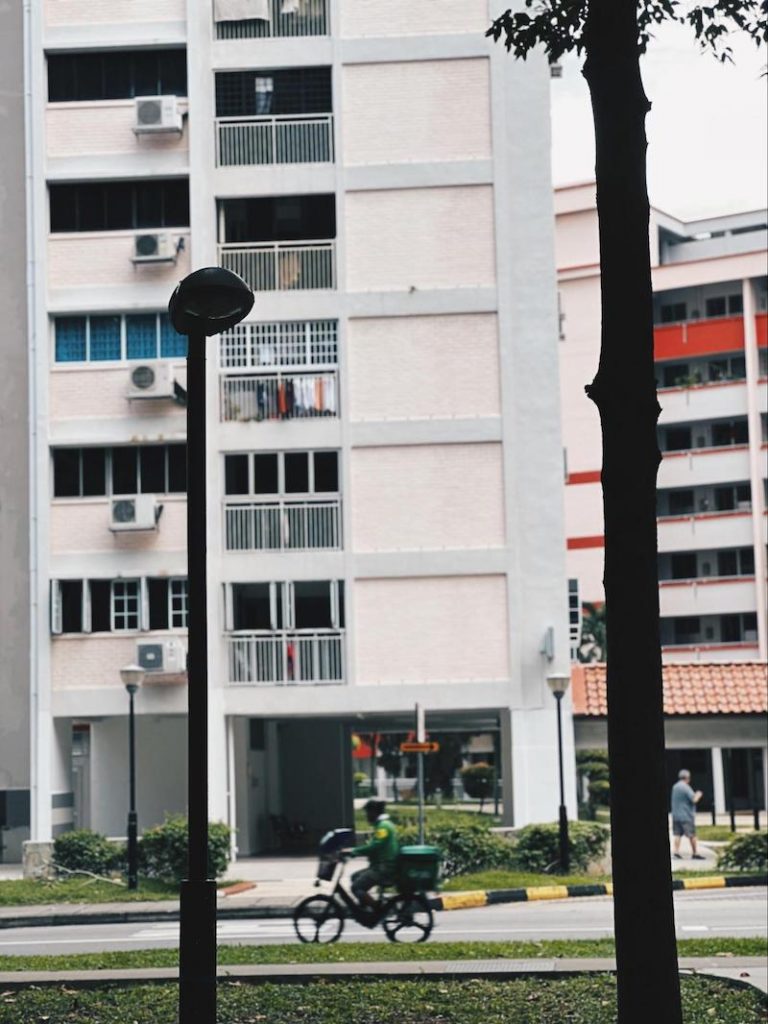
But at its root is the material idea of wealth and prosperity. The more prosperous you are, the more you show that you have the capability to take care of your family and the more respect you’ll get.
This idea is deeply rooted in (most) Singaporean men’s lives and identities—the ultimate goal. If they can’t achieve that by themselves, they’ll feel unfulfilled.
*Aiman adds that the very idea of seeking help is difficult enough. This sheds light on a unique type of Asian masculinity Singaporean men hold themselves to—mainly, being the strong, dependable and perfectly capable head of the household.
‘Too Troublesome Lah’
The reluctance of men when it comes to seeking help is not solely due to their attitudes, though. The efficacy of our help-seeking systems should also come into question.
In our fast-paced modern society, everyone seems to have something to do all the time. The bureaucratic nature of our help systems may act as a deterrent for already hesitant men, thereby making the process of seeking help a needless struggle.
This issue has an especially large impact on men. A study by Pew Research Centre shows that today, 55 percent of opposite-sex marriages involve a husband who is the primary or sole breadwinner. If men are disproportionately the breadwinners for their families, it would be natural for them to reject help when it becomes a time-consuming burden added to their already busy schedules.
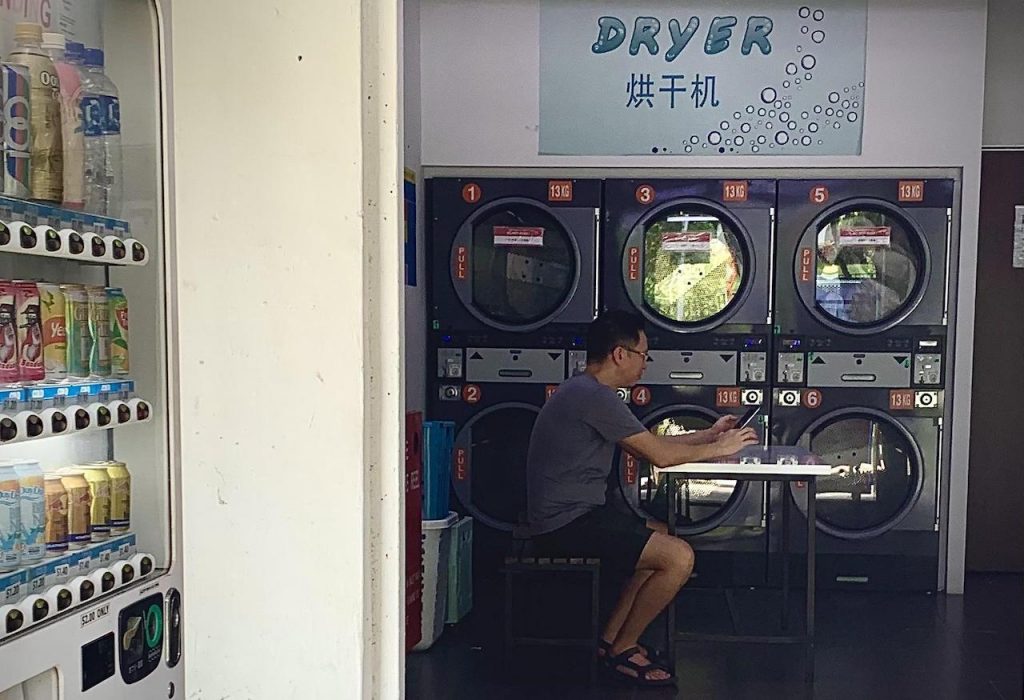
*Adrian, who approached PPIS for assistance with his children’s school fees, feels strongly about this issue.
“Sometimes [men] have already given up due to all the processes… they don’t understand the administrative aspect of it, especially those who are uneducated,” he mentions.
“All the form-filling, going back and forth, etcetera—this makes them embarrassed and uninterested to seek help. If they see that the processes may be long, they may not go ahead because they don’t even know what’s happening.”
Launched by the Ministry of Social and Family Development in 2005, Singaporeans or Permanent Residents who are in need of financial support may apply for ComCare financial assistance administered by Social Service Offices. Generally, each application necessitates the submission of personal documents, including identity cards/birth certificates, bank statements, medical documents, employment letters and utility bills.
An application may take an estimated four to six weeks for the processing to be completed before the applicant receives the outcome of their application.
It’s important to acknowledge the effect that complicated help-seeking systems have on the rate at which men seek help. Perhaps what men really need are systems that are more discreet, convenient and efficient.
The Urge to Seek Help
“Once I am really stable, I won’t need financial help. But counselling-wise—such as learning how to budget and how to keep a stable marriage—I will still want to seek help,” *Khairul shares.
“Mental health, how to solve problems, staying happy, how to tighten the connection with family—these are still things to work on and seek help for once [my finances are] stable.”
While such willingness to seek help paints a hopeful picture, we still have a long way to go in supporting and uplifting Singaporean men. As the stories by *Aiman, *Khairul and *Adrian show, a combination of external pressures and ingrained mindsets result in many men still having qualms about seeking help.
While such attitudes will need a long time to change, what we can do now is shorten and smoothen the processes men have to go through in order to receive aid so that there is one less obstacle in their way. With better help-seeking systems—and a shift in societal mindsets—men will not have to hesitate anymore.
*Names have been changed



